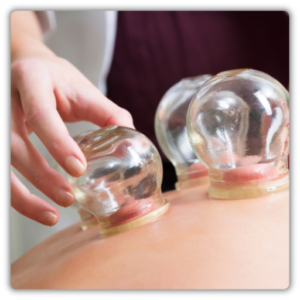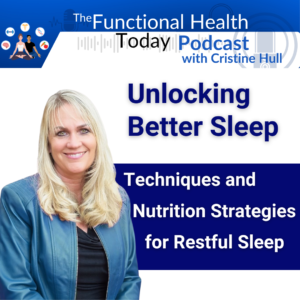What is postpartum depression?
 Postpartum depression, sometimes mild depression, is a form of depression that affects many pregnant and postpartum women. Symptoms may include sadness, fatigue, and appetite changes. Depression can affect your baby, making depression screening essential. Signs of postpartum depression should not be ignored—talk to your health care provider, as signs of depression can escalate, increasing the risk of suicide or developing postpartum psychosis. Addressing depression among women, especially postpartum depression, is crucial for long-term well-being.
Postpartum depression, sometimes mild depression, is a form of depression that affects many pregnant and postpartum women. Symptoms may include sadness, fatigue, and appetite changes. Depression can affect your baby, making depression screening essential. Signs of postpartum depression should not be ignored—talk to your health care provider, as signs of depression can escalate, increasing the risk of suicide or developing postpartum psychosis. Addressing depression among women, especially postpartum depression, is crucial for long-term well-being.
KEY POINTS
Postpartum depression (PPD) is a serious mental health condition affecting new mothers, characterized by persistent sadness, fatigue, anxiety, and changes in appetite.
Unlike temporary “baby blues,” PPD can last for months and may require professional treatment, including therapy, medication, and support groups.
Risk factors include a personal or family history of depression, hormonal fluctuations, and previous postpartum depression experiences.
PPD can impact a mother’s ability to bond with her baby, leading to feelings of inadequacy, guilt, and social withdrawal if left untreated.
Early intervention, mental health support, and personalized treatment plans are crucial for recovery and long-term well-being.

Pop in your email below, and we’ll zip it straight to your inbox so you never lose it!
Understanding the symptoms of postpartum depression
Understanding the symptoms of postpartum depression is crucial for new mothers. After the baby is born, many may have postpartum challenges. Hormonal fluctuations, particularly the hormones estrogen and progesterone, can increase the risk of depression and lead to major depression.
Postpartum depression may manifest with severe signs and symptoms of depression, lasting weeks after giving birth. According to the National Institute of Mental Health, it’s essential to address these mental health conditions through postpartum checkups and care. Seeking treatment can significantly improve recovery.
Unlike baby blues, which usually resolve within two weeks, postpartum depression can last for months and requires treatment. In addition, postpartum anxiety and postnatal depression often accompany depression during and after pregnancy, increasing the risk of mental disorders. If you experience severe symptoms, such as suicidal thoughts, it’s crucial to tell your healthcare provider immediately.
While postpartum psychosis may develop in rare cases, it’s important to understand that untreated depression can also affect your ability to care for your baby. Recognizing symptoms early and joining a support group can help manage symptoms of postpartum depression and promote healing.
What are the risk factors for postpartum depression?
 Postpartum depression is a common condition that affects many new mothers. Several risk factors for postpartum depression can increase the likelihood of experiencing this disorder. A history of depression or a family history of depression can significantly heighten the risk of postpartum depression. Additionally, women who have previously had a postpartum depression experience are at an increased risk. Symptoms of postpartum depression typically begin within the first few weeks postpartum and can cause extreme sadness and despair.
Postpartum depression is a common condition that affects many new mothers. Several risk factors for postpartum depression can increase the likelihood of experiencing this disorder. A history of depression or a family history of depression can significantly heighten the risk of postpartum depression. Additionally, women who have previously had a postpartum depression experience are at an increased risk. Symptoms of postpartum depression typically begin within the first few weeks postpartum and can cause extreme sadness and despair.
Symptoms include feelings of inadequacy, anxiety, and overwhelming fatigue. This condition, often referred to as postpartum unipolar depression, can cause symptoms similar to regular depressive episodes. New mothers may find themselves experiencing symptoms of postpartum depression or feel as if they are battling depression or something else. Treatment for postpartum depression is crucial, as depression can be treated effectively. Seeking mental health support and getting treatment is important for recovery and well-being.
How is postpartum depression treated?
Postpartum depression is commonly treated with a combination of therapy, medication, and support. The treatment plan depends on the severity of the symptoms and may include counseling to address depressive symptoms and anxiety. Medication can also be prescribed to help manage the emotional challenges.
Healthcare providers play a vital role in diagnosing and treating postpartum depression. By recognizing the symptoms early, they create personalized treatment plans to help mothers manage their mental health. Early intervention is crucial for reducing the impact of depressive symptoms and improving emotional well-being.
Support groups are an essential component of recovery for those experiencing formerly postpartum depression. These groups offer a safe space to connect with others who understand the challenges, providing encouragement and reducing feelings of isolation. Sharing experiences and coping strategies in these groups can help mothers feel supported and less alone in their journey toward healing.
What are the signs and symptoms of postpartum depression?
Postpartum depression (PPD) can cause a range of symptoms that deeply impact a new mother’s emotional well-being. Many women may feel overwhelming sadness, fatigue, or hopelessness that lingers beyond the typical “baby blues.” These depressive symptoms can interfere with daily tasks, making it difficult to bond with the baby or care for oneself.
Common symptoms of postpartum depression include anxiety, irritability, changes in appetite, and trouble sleeping—even when the baby is resting. Some mothers may feel a loss of interest in activities they once enjoyed or experience a sense of guilt or worthlessness. It’s important to recognize these signs early, as untreated symptoms can impede a mother’s ability to care for herself and her child.
Severe postpartum depression can lead to withdrawal from family and friends and a persistent sense of inadequacy. In extreme cases, symptoms may worsen to the point of feeling unable to care for the newborn. Support is crucial in these situations, as early intervention can lead to effective treatment, providing a path toward recovery and improved emotional health.
How does postpartum depression affect mental health?
Postpartum depression (PPD) significantly impacts a woman’s mental health, often leading to debilitating symptoms that can affect daily functioning. New mothers may feel overwhelming sadness, anxiety, or a sense of hopelessness, making it challenging to bond with their newborns. These emotional struggles can also manifest as irritability or mood swings, further complicating relationships with partners and family members. Additionally, PPD can lead to feelings of inadequacy and guilt, as mothers might feel they are not meeting societal expectations or their own standards of parenting. Without proper support and treatment, the effects of postpartum depression can linger, potentially leading to chronic mental health issues that persist long after the initial postpartum period.











